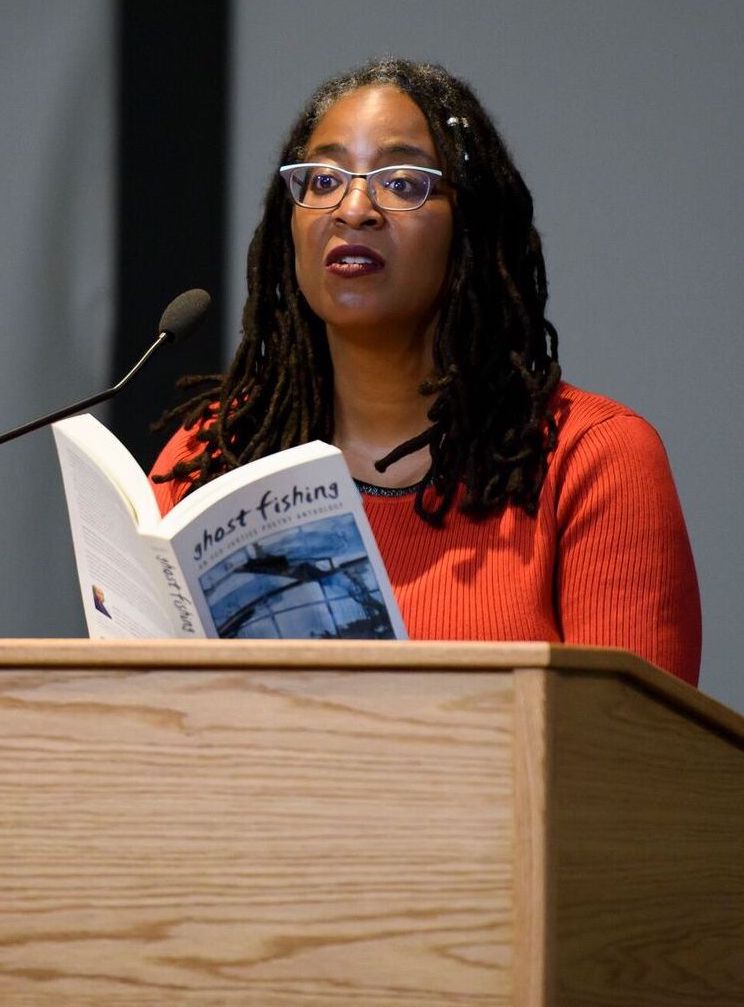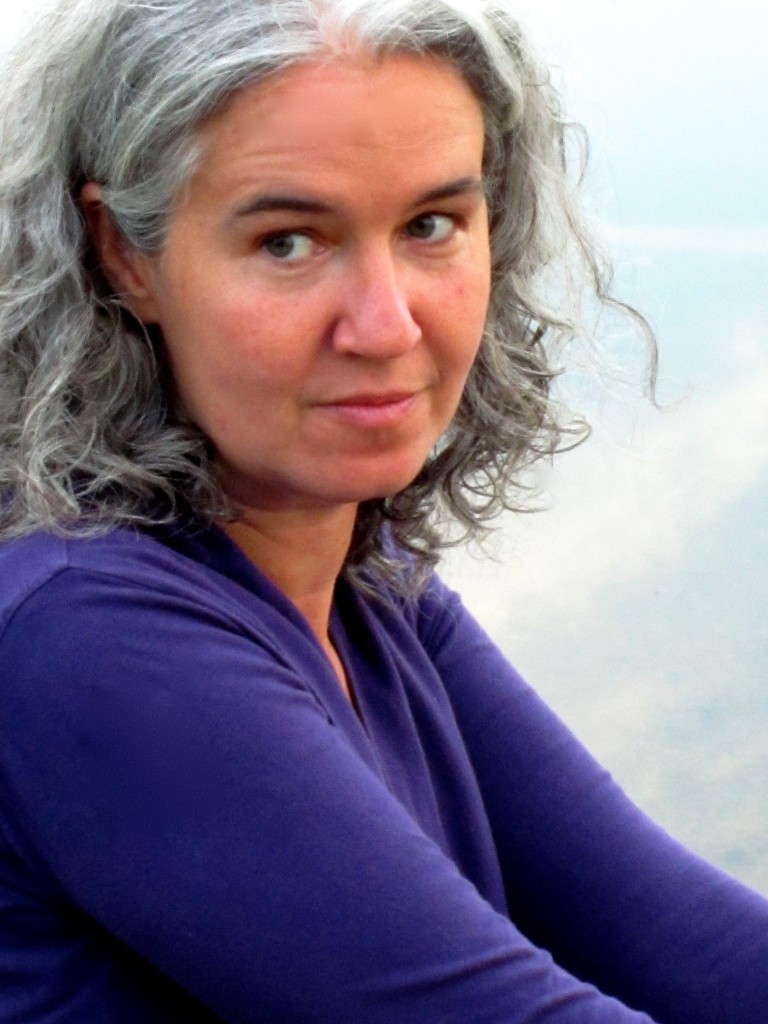Split This Rock Eco-Justice Project
"A gathering of poetry at the intersection of culture, social justice, and the environment."
Coordinated by Melissa Tuckey, Split This Rock's Eco-Justice Project has aimed to amplify the voices of poets who are writing at the intersection of social justice and the environment and build community between activists and poets. Centered within that work has been the creation of Ghost Fishing: An Eco-Justice Poetry Anthology which was published by the University of Georgia Press in March 2018.
The Eco-Justice Project has included readings, workshops, and other events highlighting the connection between environmental concerns and social justice, embracing the rights of all people to have equal access to nature and a healthy, safe environment, and creating an opportunity for cross-cultural connection.
Melissa is available for speaking engagements and interviews on the book. Contact her directly for more information at melissa.dcpaw@gmail.com.
ABOUT GHOST FISHING: AN ECO-JUSTICE ANTHOLOGY
.jpg) FEATURING: Craig Santos Perez ♦ Rigoberto González ♦ Yusef Komunyakaa ♦ Adrienne Rich ♦ Ross Gay ♦ Allison Hedge Coke ♦ Linda Hogan ♦ June Jordan ♦ Lucille Clifton ♦ Camille T. Dungy ♦ Martín Espada ♦ Margaret Walker and many others!
FEATURING: Craig Santos Perez ♦ Rigoberto González ♦ Yusef Komunyakaa ♦ Adrienne Rich ♦ Ross Gay ♦ Allison Hedge Coke ♦ Linda Hogan ♦ June Jordan ♦ Lucille Clifton ♦ Camille T. Dungy ♦ Martín Espada ♦ Margaret Walker and many others!
From University of Georgia Press: "Ghost Fishing is the first anthology to focus solely on poetry with an eco-justice bent. A culturally diverse collection entering a field where nature poetry anthologies have historically lacked diversity, this book presents a rich terrain of contemporary environmental poetry with roots in many cultural traditions.
Eco-justice poetry is poetry born of deep cultural attachment to the land and poetry born of crisis. Aligned with environmental justice activism and thought, eco-justice poetry defines environment as “the place we work, live, play, and worship.” This is a shift from romantic notions of nature as a pristine wilderness outside ourselves toward recognition of the environment as home: a source of life, health, and livelihood.

Ghost Fishing is arranged by topic at key intersections between social justice and the environment such as exile, migration and dispossession; war; food production; human relations to the animal world; natural resources and extraction; environmental disaster; and cultural resilience and resistance. This anthology seeks to expand our consciousness about the interrelated nature of our experiences and act as a starting point for conversation about the current state of our environment".
Pictured right: Camille T. Dungy reading during the Ghost Fishing Book Launch at Split This Rock Poetry Festival 2018. Photo by Kristin Adair.
The project's goal is to help build capacity for transformative change by giving voice to some of the most pressing issues of our times, embracing the complexity of the challenges we face, and creating space for imagination. Readings from the anthology aim to spark conversation on the ways in which diverse topics such as race, and class, and gender intersect with environmental concerns. Through writing workshops and other interactive activities, community members are invited to engage their concerns in a creative way in hopes that the exchange will feed both activist and artist and plant the seeds for further collaboration. Visit University of Georgia Press' website for more information on the anthology.
Ghost Fishing in Poetry Magazine
.jpg)
"And there, not the promised land, but barbwire and barbwire / with nothing growing underneath it." - "Saguaros" by Javier Zamora
The January 2016 issue of Poetry Magazine focused on eco-justice, and included an early look at some of the poems that would be featured in Ghost Fishing. Melissa Tuckey wrote the introduction for the issue:
"In collecting poems for the anthology, I’ve learned to fully appreciate the role of culture in connecting us to the environment, as well as the historic way that colonization, war, white supremacy, and other forms of dispossession have robbed generations of their cultural connection to the land; poetry and other arts have served throughout as a form of resistance, an act of resurgence, and cultural memory."
Read the full introduction and selected poems from the anthology at the Poetry Foundation's website..
Book Review
From Hooligan Magazine:
"This anthology took off in its ability to make both eco-justice and poetry feel accessible and relatable. At the forefront of this is the well sought out inclusion of diverse cultural and identity representations in the poets and their topics. Compiling a truly representational book of ecologically and socially aware poetry from a subject historically shadowed by cliché dead white men musing about flowers is no small feat. In doing so, editor Melissa Tuckey helped correct the cliché and successfully acknowledged readers who have felt their narratives on this topic were broadly unheard and unaccounted for up until this point."
Read the full review on Hooligan Magazine's website.
ABOUT MELISSA TUCKEY
Melissa Tuckey is a poet, editor, and literary activist, and co-founder of Split This Rock. She’s editor of Ghost Fishing: An Eco-Justice Poetry Anthology. Tenuous Chapel, her book of poems, was selected by Charles Simic for the ABZ First Book Award in 2013. Other honors include a Black Earth Institute fellowship and a winter fellowship at Fine Arts Work Center in Provincetown. Her poems have been anthologized in DC Poets Against the War anthology, Ecopoetry, Fire and Ink: Social Action Writing, and Truth to Power. Her work has also appeared in Interdisciplinary Studies in Literature and the Environment, Cutthroat, Kenyon Review, and Missouri Review. Melissa lives in Ithaca, New York.
